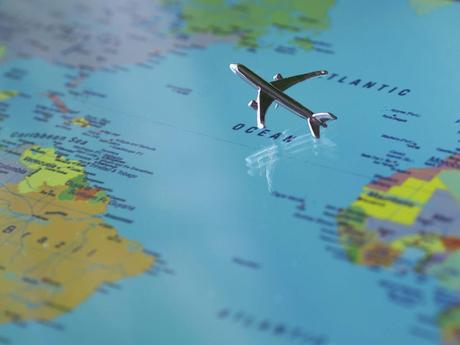
International travel can be one of the most exciting and nerve-wracking experiences of your life. You're seeing new places and immersing yourself in new cultures, but you're also in a territory that may be entirely foreign to you. The customs and requirements may be quite different from what you're used to, and that can be jarring once you hit the ground at your destination. For this reason, it's best to prepare well in advance for any international trips you've got coming up.
1. Get Your Documents in Order
Domestic travel can be easy - you grab your driver's license, pack a quick bag, and head to the airport. You also rarely have to worry about medical issues, foreign diseases, or extra paperwork when you're traveling within the contiguous United States. When you leave the U.S., however, it's a different story. Showing up at the airport without all of your plans in place and papers in order can delay your trip or cause it to be canceled entirely.
So, what paperwork do you need? You'll want to make sure your passport is up-to-date. In most cases, a passport is good for 10 years. You should also look into visa requirements for the country you're traveling to. You can streamline this process with iVisa, which will ensure you've got your papers in order well before you plan to depart. Finally, invest in a wallet you can keep on your body that will keep your documents safe while you travel.
2. Get Insured
Anytime you travel to a country outside the United States, you'll want to do your research on the healthcare situation in your destination. Foreign countries may have diseases you've never been exposed to that can make you seriously ill. And your healthcare coverage will likely only work for you in the United States. If you fall ill or have a dental or vision emergency, you will likely pay out of pocket, which can get pricey.
To avoid these potentialities, get covered. First, look into any health advisories for the country you're traveling to and talk to your doctor about getting the vaccines you need. Next, figure out where the local health clinics or hospitals are near your lodgings. Last, get yourself and your family travel insurance. Depending on your provider and plan, you can get cancellation insurance, baggage coverage, and even 24/7 emergency assistance, among other options.

3. Research Your Destination
Many times, you have an idea of where you want to go, and you start booking flights and hotels before you really know what you're getting yourself into. It's a wonderful way to live - spontaneously and in the moment. But it can also cause you stress and headaches, not to mention put you in danger, if you're not careful. Areas around the world suffer from political unrest, viral outbreaks, and natural disasters you may not know about.
Take the safe route and do your due diligence. Contact the U.S. State Department to let them know where you'll be traveling and register your trip. They'll let you know if you need to take any extra precautions or if you should avoid this trip altogether. You should also research milder issues for travel like the weather, whether the environment is walk able, and if there are any mandatory dress codes. Your travel will usually be more enjoyable if you know what to expect.
4. Book Lodging, Transportation, and Events in Advance
A large part of researching an area includes booking your lodgings, transportation, and any excursions you plan to take while there. Far too many people have nightmare stories of arriving without lodging booked and getting stuck in a scary or disgusting hovel. And you don't want to arrive in the airport expecting to grab a vehicle only to discover they're sold out. Or to head to a fabulous restaurant only to have them tell you they're booked out for weeks!
Unless you have a travel agent, you'll have to take care of these things for yourself, well in advance. Check reviews online for the lodgings you'd like, explore the surrounding areas on a map, and then visit websites that discuss the neighborhood you want to stay in. Book your room or house, get your car reserved, and call any restaurants or tour guides for reservations weeks or months before your trip. Then, when you arrive, all you have to do is show up and have fun!
5. Pack!
Planning and booking can be one of the most fun parts of international travel. The buildup and excitement is an experience unto itself. In contrast, packing can be an anxiety-riddled debacle that makes you want to throw your hands in the air and give up. You don't want to over pack, but you also don't want to be thousands of miles from home without your essentials. One of the best things you can do is make a list now, and then check items off as you go.
First, make sure you've got great luggage for all your various travel needs. You'll want a large bag, a carry-on, a backpack, and a cross body bag. To your luggage, you'll want to add mix-and-match outfits (be sure you're prepared for all potential weather events), jewelry, makeup and skincare items, and your hygiene items. And don't forget your electronic devices, including a camera, and chargers and converters for international outlets.
Travel doesn't have to be stressful or exhausting when you plan accordingly and prepare well in advance. Take the time to ask people you know who have been to your destination, and then surf the web for input from the online community. You live in the information age, and there are dozens of websites helping you learn about where you're going. Get booked, reserved, and packed, and head to the airport for a wonderful trip!
Also read:
